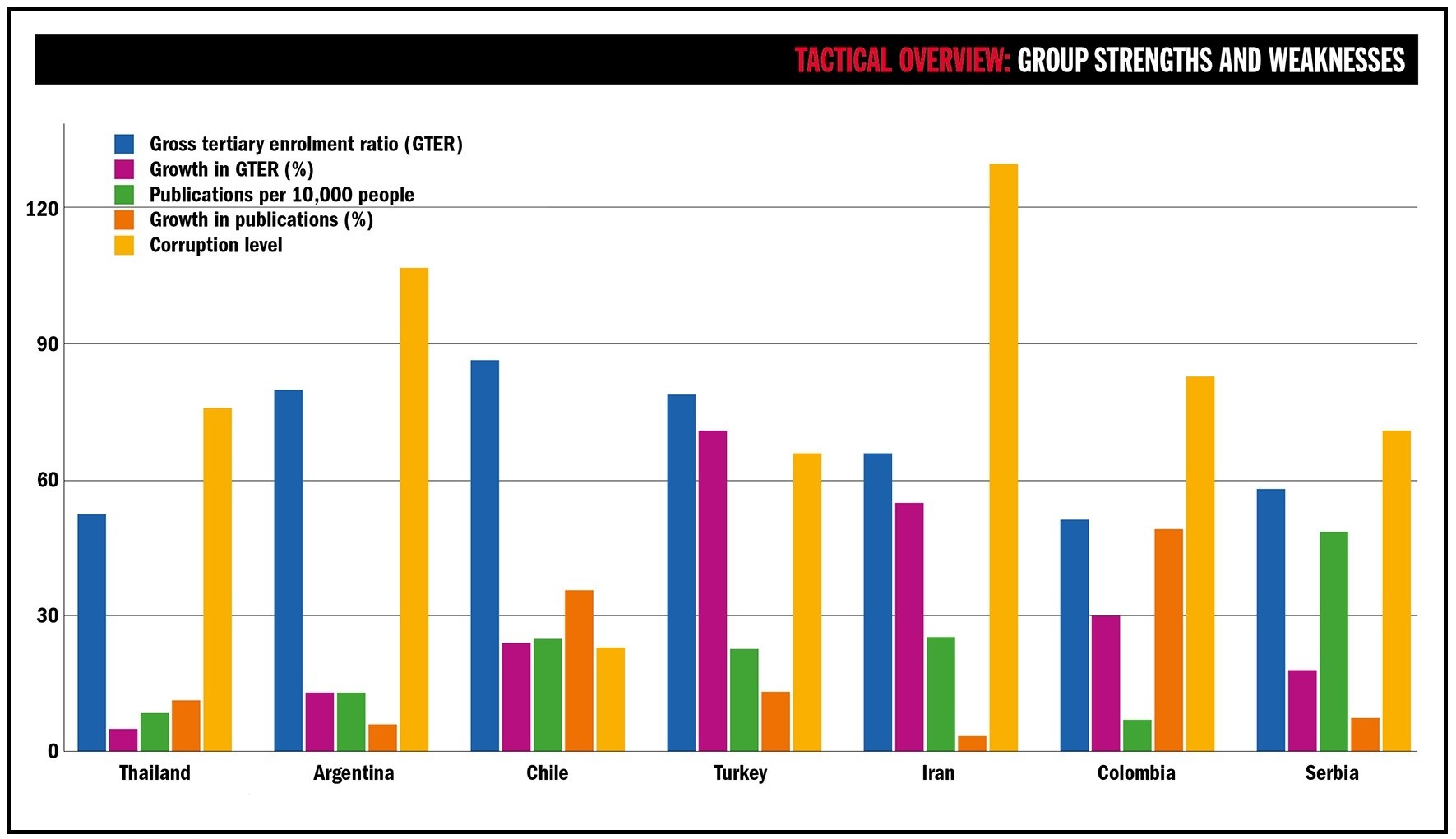These countries could be the world's new education superstars

Seven countries are surprise risers in the global university rankings
Image: Baim Hanif
Stay up to date:
Education
Build a big, strong, respected higher-education system in your country and your economy will grow.
It’s not just me saying that. A London School of Economics analysis of nearly 15,000 universities in in 78 countries has found that doubling the number of universities in a region results in a 4.7% increase in GDP per capita in that area within five years.
So which countries are the ones to watch? Which regions are best placed to exploit this link between higher-education expansion and economic growth?
It’s not an easy question to answer. But working with the Centre for Global Higher Education at the UCL Institute of Education, Times Higher Education has looked at a range of academic and economic metrics like research publication rates, higher education participation rates and GDP per head, and identified seven countries that are in prime position to succeed.
We call them the TACTICS.

From a higher education point of view, Thailand, Argentina, Chile, Turkey, Iran, Colombia and Serbia have the potential to outstrip the BRICS nations of Brazil, Russia India, China and South Africa – the countries traditionally identified as global rising stars.
In all these countries, GDP is below US$15,000 a head, yet at least half the youth population is enrolled in higher education. Participation grew by 5% or more between 2010 and 2014; their research output is growing from a base of at least 30,000 papers a year; and they have at least one university in the Times Higher Education World University Rankings. The full methodology for the analysis is available here.

As THE editor John Gill explains, although these countries all boast the fertile conditions needed to bear fruit, they are far from homogeneous: each country has "a different cocktail of strengths and weaknesses”.
He points to Iran and Turkey – both intellectually rich nations, which perform well on gross higher education enrollment and boast sustained growth in participation. “Yet each faces huge political challenges. Iran is rated as having the most corrupt public sector of any in our group by Transparency International’s Corruption Perceptions Index, and academic appointments are seen as being linked to ideology as much as merit.”
This is important. An analysis of data across the TACTICS shows, simply put, that higher levels of corruption correlate with lower quality research.
Turkey has its own issues. A government crackdown following the attempted coup earlier this year saw more than 1,500 academic deans forced to resign. Universities are reliant on the talent that they can attract, and the damage that this purge has had on Turkey’s reputation could badly damage its ability to attract top researchers.
In fact, every one of the TACTICS nations has issues that could, if not addressed, jeopardize the progress that could so readily be theirs.
However, if you look closely at the performance of these countries from a higher-education perspective, as we do in this analysis, then their growth really could be a defining feature of the next decade.
In their research output, university participation and performance in global rankings, these overlooked “ones to watch” are already frequently out-punching the BRICS nations. And when countries perform well in these areas, they almost always reap the economic rewards too.
Don't miss any update on this topic
Create a free account and access your personalized content collection with our latest publications and analyses.
License and Republishing
World Economic Forum articles may be republished in accordance with the Creative Commons Attribution-NonCommercial-NoDerivatives 4.0 International Public License, and in accordance with our Terms of Use.
The views expressed in this article are those of the author alone and not the World Economic Forum.
Forum Stories newsletter
Bringing you weekly curated insights and analysis on the global issues that matter.
More on Education and SkillsSee all
Tanya Milberg
May 22, 2025
Anurag Sinha
May 9, 2025
Navi Radjou
May 8, 2025
Rachmat Pambudy
May 1, 2025
Ricky Li and Ximena Játiva
May 1, 2025






